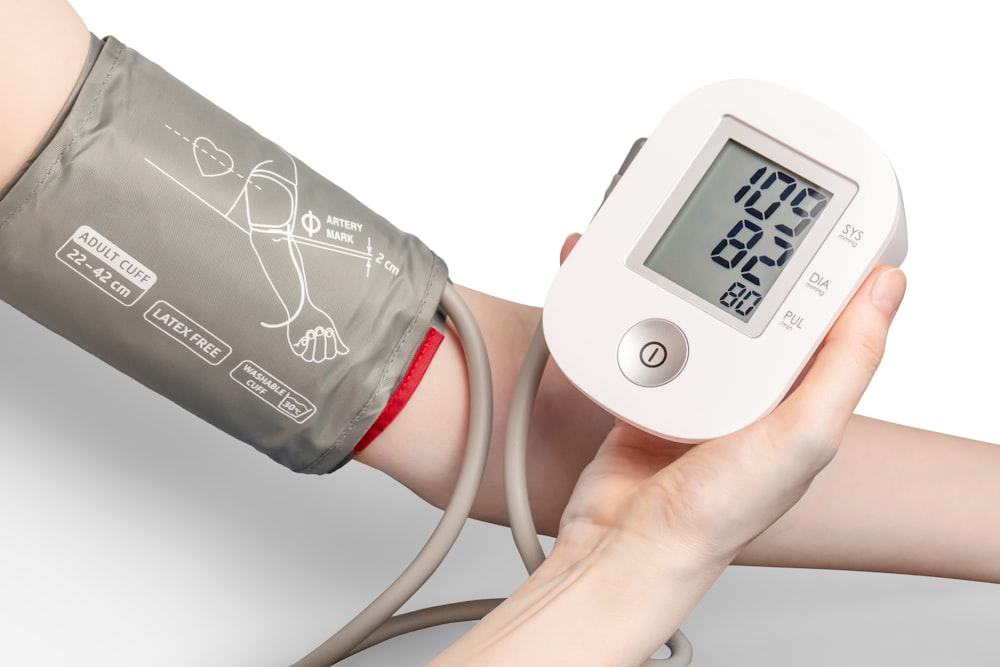
Heart disease is the leading cause of death globally, which is why protecting your heart health is so important. According to the World Health Organization (WHO), approximately 17.9 million people die annually due to heart ailments. Anyone can get heart disease, but you do have a higher risk if you have a family history of cardiovascular diseases, or a chronic health condition such as diabetes, high cholesterol, or high blood pressure. Being older than 45 also increases your risk of heart problems, because natural aging causes both your heart and blood vessels to stiffen.
On top of that, lifestyle habits such as being too sedentary, smoking tobacco, eating unhealthy processed foods, and being overweight put you at a higher risk for heart problems. Fortunately, all hope is not lost because you can do a lot to protect your heart. Many simple lifestyle changes will help protect your heart health. Preventative measures to keep your heart healthier will help to lower your risk for heart disease. Below are 10 ways you can protect your heart for a healthier and longer life:

1. Follow a Heart-Healthy Diet
There’s solid evidence of a correlation between a healthy diet and heart health. Consuming processed junk foods that are rich in trans fats, sodium, and additives makes you prone to the onset of hypertension, bad cholesterol, and heart disease. These harmful ingredients elevate your blood pressure and clog up your arteries and blood vessels, making you susceptible to a heart attack.
If you want to protect your heart, pay attention to what you eat. Following a heart-healthy eating plan with fruits, vegetables, whole grains, lean protein, and healthy fats lowers your risk of heart disease. Tweak your diet by using herbs and spices instead of salt. More importantly, eat foods rich in omega 3 fatty acids, such as salmon and avocado, because they increase your good cholesterol levels which protect against the onset of heart disease.
2. Get Up and Exercise
If you want to increase your longevity, you have to get up and move. Be a more active person to keep your heart healthy. Physical activity is great for your heart. Sadly, the World Health Organization estimates that 1 in 4 adults, or roughly 1.4 billion people, do not do enough physical activity to stay healthy. Being inactive and living a sedentary lifestyle could be a one-way ticket to heart failure.
Bear in mind, working out improves your muscle strength and endurance. And as experts say, the heart is one of the biggest muscles of the body which contracts and expands daily. If you want to keep a healthy heartbeat, you must do moderate exercise for at least 30 minutes, 4 times a week, and try to include both cardiovascular activities and strength training.
Cardio (such as running, swimming, cycling or hiking) will exercise your heart muscle and help it become stronger.
When you work out, you also accelerate your heart rate and your breathing. As a result, your blood delivers more oxygen and nutrients to your tissues and cells. This helps keep your cardiovascular system working more efficiently. Furthermore, when your heart health improves, you have more energy throughout the day.
3. Quit Smoking
With so many health warnings out there, many even written on the cigarette box itself, everyone knows that smoking is bad. The toxic compounds in tobacco are the primary culprit for lung cancer. On top of that, these components also damage your blood vessels; clogging up your arteries, increasing blood pressure, and causing an elevated heartbeat. Besides, inhaling nicotine and other substances drastically reduces the oxygen levels in your blood.
Studies reveal that smoking increases your propensity for heart attack, stroke, and other peripheral arterial diseases. Although quitting may be a herculean challenge if you are addicted to cigarettes, stopping this habit is one of the best things you can do to improve your heart health. If you need help, speak with your healthcare provider to create a withdrawal plan.

4. Maintain a Healthy Body Weight
Staying in control of your weight is not just for vanity but is a necessity for a healthy heart. If you pack on too many pounds, you place your heart and other organs at risk. Being overweight usually means you are carrying excess lipids or fats. Moreover, it can lead to the buildup of fatty material in your arteries and blood vessels. When these get clogged, you increase your blood pressure and can suffer a heart attack.
Thus, if you are overweight, you need an effective weight loss plan with realistic goals. Speak with your dietician, nutritionist or personal trainer about creating a healthy eating and exercise regimens in your day-to-day life.
5. Consume Less Alcohol
If you love drinking your bubbly, bottle of beer or glass of wine, you increase your risk of heart disease. Alcohol consumption can raise the lipid, or fat, level in your bloodstream. This is especially harmful if you have a lot of bad cholesterol (LDL) and triglycerides, coupled with low levels of good cholesterol (HDL). Poor blood lipid profiles can cause plaque buildup (atherosclerosis). The worst-case scenario is when a piece of this plaque breaks off. This can cause a clot to form, resulting in a heart attack.
The more you drink, the more you increase your risk of heart diseases like arrhythmia or atrial fibrillation. If you truly want to live a healthy lifestyle, pay attention to your alcohol consumption. For adults, this means no more than 14 units per week, spread over 3 days (or more). But, of course, it would be best if you curb your consumption as this is the safest option.
6. Mitigate Stress
Don’t slowly kill yourself with stress. The grinding pace of living in this modern world means you expose your body to repeated stressors. And the effects of this stress compound over time. Sadly, stress can bog down your immune system, increase your blood pressure, and adversely impact your heart.
On top of that, coping with stress sometimes leads to the formation of unhealthy habits. People who feel overwhelmed tend to engage in the following unhealthy habits:
- Smoking
- Drinking alcohol
- Binge eating
- Veg-ing in front of the TV (sitting for hours)
All of these coping mechanisms are bad news for the heart. Therefore, you must learn to manage stress with healthier activities. Try meditation, seek therapy, exercise, or find a creative outlet. There are many ways to reduce stress without hurting your heart.
7. Monitor Your Cholesterol Levels
Cholesterol is not entirely bad because it is essential in order for your body to function. However, high LDL cholesterol levels can increase your blood pressure, promote atherosclerosis (hardening of the heart), and could even cause a heart attack. On top of that, having a poor HDL level (the good cholesterol) increases your risk of heart disease. This type of good cholesterol is responsible for removing bad lipids from your bloodstream. Fortunately, you can manage your cholesterol by doing the following:
- Monitoring your blood lipid profile yearly
- Eating a heart-healthy diet
- Staying physically active
- Take the medication prescribed by the doctor

8. Monitor Your Blood Pressure
High blood pressure, or hypertension, is one of the primary culprits of heart disease. This condition can damage your heart by making it less elastic. As a result, this can mess up your heartbeat and decrease the flow of oxygenated blood into the heart. With poor blood flow, you can suffer angina (or chest pains).
At the age of 20, your doctor will begin charting your blood pressure during your annual checkup. People who are older or have a family history of heart disease may be advised to monitor their blood pressure readings at home. Those who suffer from hypertension can keep it under control with medication. Your doctor may also encourage lifestyle changes like quitting smoking, eating healthy, reducing alcohol, and managing other chronic issues like diabetes and bad cholesterol.
9. Control Blood Sugar Levels
Pre-diabetes and diabetes can increase your risk of heart disease. If you want to protect your heart health, it is important to manage your sugar intake. The liver metabolizes sugar by converting it into fat. Excessive consumption means a greater accumulation of fat, resulting in fatty liver disease. In turn, this condition raises your risk for heart problems.
If you want to protect your heart, follow a heart-healthy eating plan. If you have prediabetes, work hard to reduce your blood sugar with a controlled diet and exercise. If you’re living with diabetes and have maintenance medication, follow your doctor’s instructions and advice.
10. Get Annual Health Check-Ups
The most responsible adults don’t just go to the doctor when they’re feeling sick. Stay proactive and schedule annual health check-ups. Your doctor will perform preventive heart health tests to monitor your blood pressure, bodyweight, cholesterol, and blood sugar. This wellness check also includes a discussion on your current lifestyle and a review of your health history. Your doctor will draw on all the information to assess your risk of a heart attack. Should there be any issues, you will be given lifestyle suggestions and any necessary medications to get your heart health back on track.
If you are serious about preventive health, consider getting a CircleDNA test, which is the world’s most comprehensive DNA test. This at-home DNA test provides you with hundreds of health reports. This includes any genetic health conditions that you may be at risk of developing, which encourages you to take preventative steps to fight against your genes. On top of that, the reports offer nutrition, lifestyle, exercise, and other suggestions to live a healthy lifestyle based on your unique DNA.







Comments are closed.